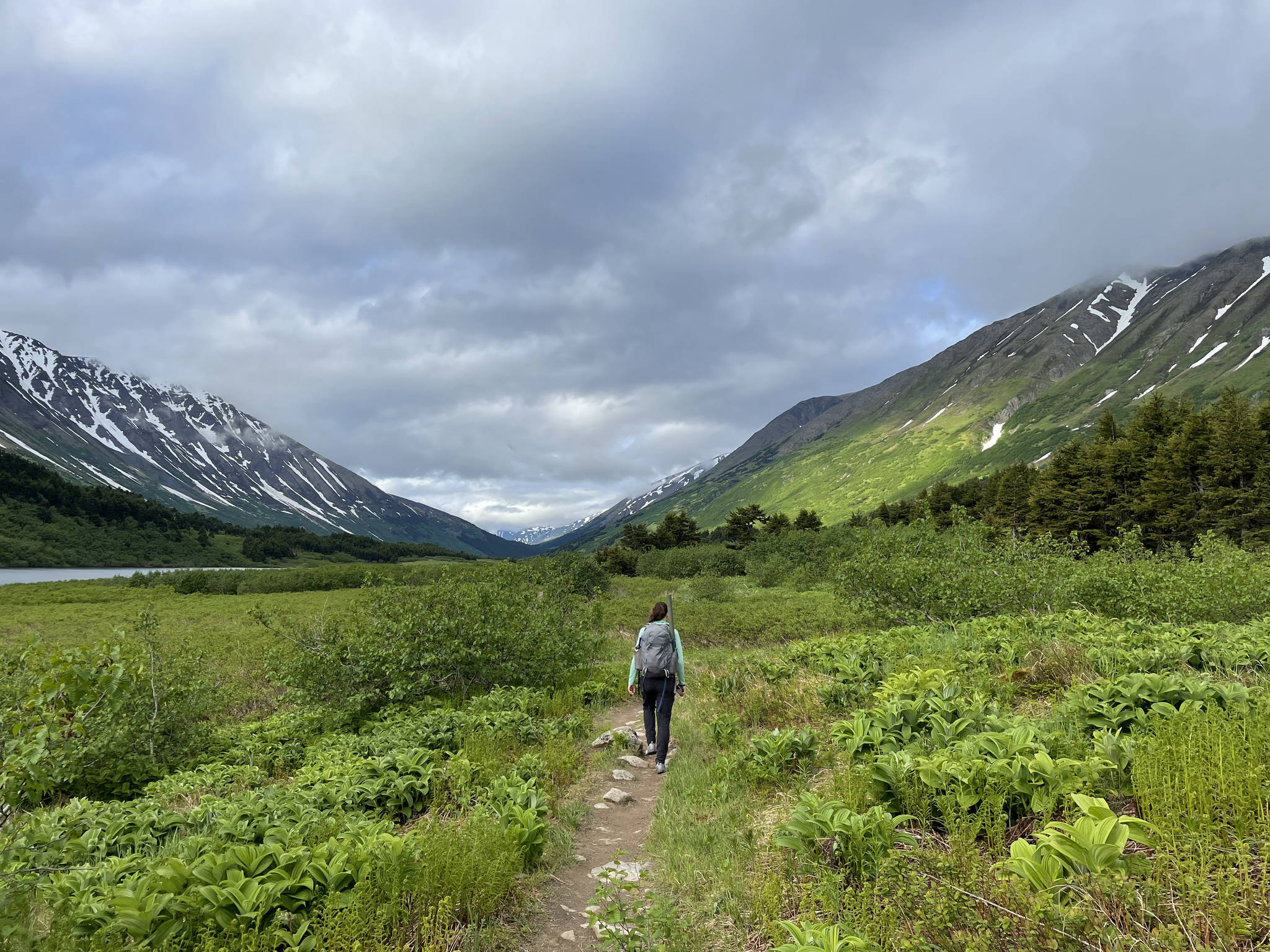Stats are weird because isolated facts tell only part of the story.
In the past few weeks I’ve had the same conversation with my wife regarding the outdoors. It’s odd, we have decided, that there is a national conversation about nature deficit and its impact on people, yet it seems the opposite is also true.
Kids aren’t satisfied by a screen-less afternoon in the woods. Neither are adults. Studies tell us nature has medicinal qualities, but we instead choose prescription answers. This is overstated in a “no one goes outside and plays anymore” sort of way.
However, whoever truly believes this hasn’t fished for kings or sockeye on the Kenai Peninsula, or been on the local trails when it stops raining in Southeast Alaska.
Anecdotal evidence, though, does have some validity. From home it does seem like fewer people are self-sufficient enough to be entertained by the simple complexities of nature. It seems like this is an ever-growing phenomenon that, the most paranoid (sometimes me) believe, will end in virtual hikes replacing real ones as our culture continues to race for ease and availability.
Yet, everywhere worth going outside is packed. So maybe it isn’t that no one is going outside, but rather the country is so large we have enough people to sustain both the perception of nature deficit and crowding in the forest.
Sure, plenty of people from countries that don’t feature the wild landscape and incredible swaths of public land in their home countries want to see what the U.S. has to offer, but still, there are more than a lot of Americans both neglecting the woods and habitually seeking them.
It’s a weird problem, issue or observation.
To do it justice, we have to piece it out and acknowledge No.1, the complexity of all issues surrounding resource and wildlife management and No. 2, our own hypocritical tendencies.
I want people to get outside and be heathy. But not where I’m going. I want precious wilderness to stay pristine and untouched. But I want to put my boots on a trail to get there and once I do, probably take a picture with my cell phone which necessitates the mining of precious metals to exist.
I want clean forest service cabins to be stocked with firewood, but don’t want to pay $60 a night. By the way, please stop throwing food over the front rail, or leaving leftovers in the cabinet. Especially booze. Just because you didn’t want to pack out the rest of your Black Velvet, doesn’t mean the next person will be happy. Couple extra spoons? Little dish soap? Ok. Alcohol? That’s fake generosity born in laziness.
Anyway, it’s never just one or the other. Often it’s both and everything comes at a cost. We can’t have it both ways. We have seen this with tourism. How nice were those warm afternoons last summer with no cruise ships? When downtown was left to the locals to enjoy? But we know that is unsustainable.
Life requires give and take. We can’t pretend it can be summed up in a political cartoon, bumper sticker or an oversimplified conclusion after a busy day on the trail.
• Jeff Lund is a freelance writer based in Ketchikan. His book, A Miserable Paradise: Life in Southeast Alaska, is available in local bookstores and at Amazon.com. “I Went to the Woods” appears twice per month in the Sports & Outdoors section of the Juneau Empire.

